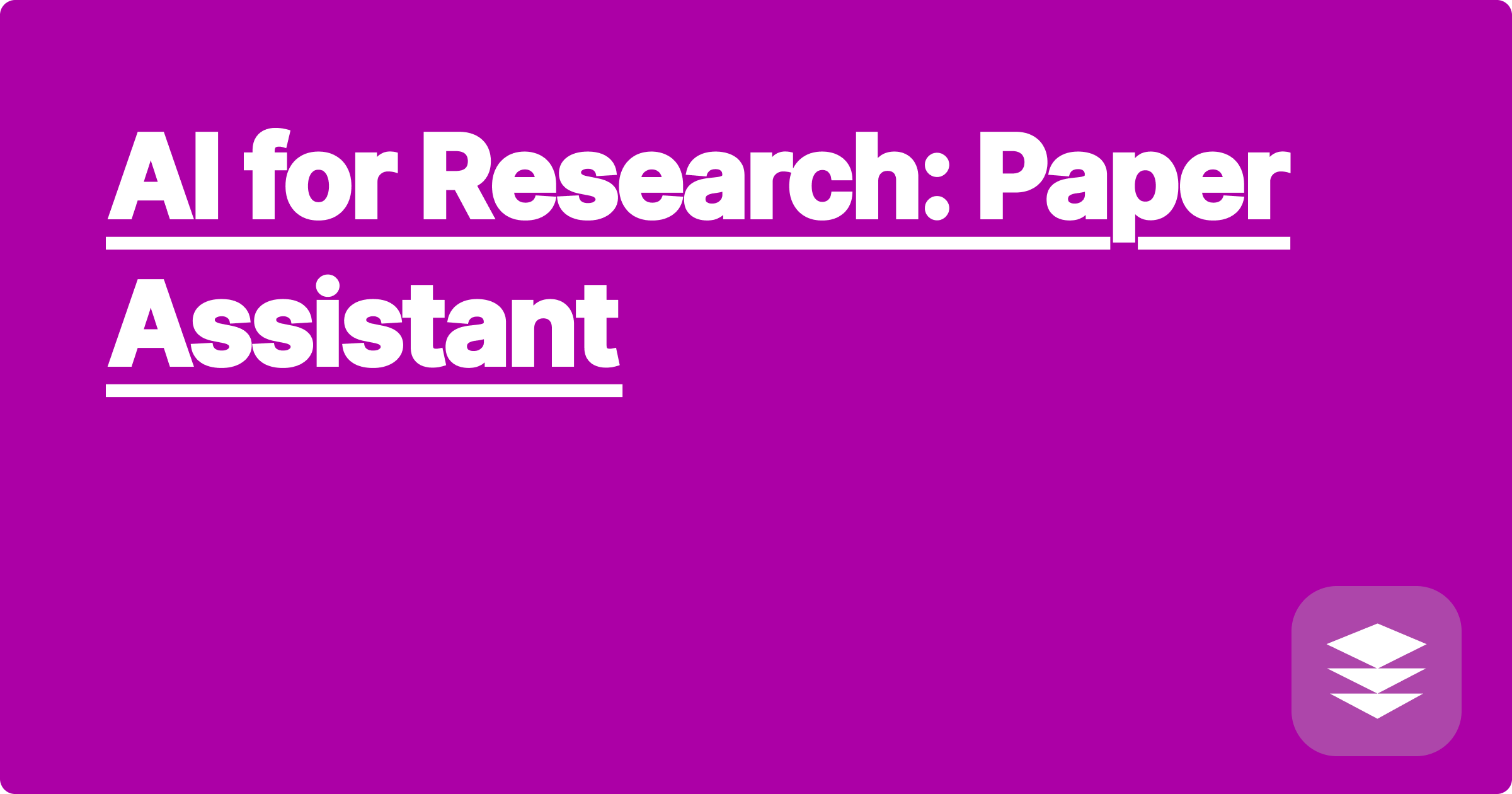
The ever-increasing volume of scientific literature presents a significant challenge for STEM students and researchers. Staying abreast of the latest discoveries, synthesizing information from diverse sources, and effectively communicating complex ideas are crucial for success in these fields. Artificial intelligence offers a powerful set of tools to navigate this complex landscape, acting as a "paper assistant" to streamline research, enhance writing, and ultimately accelerate scientific progress. These AI tools can assist with literature reviews, idea generation, drafting, editing, and even coding, freeing up valuable time and mental energy for researchers to focus on the core aspects of their work.
This shift towards AI-assisted research is not just a trend; it's a fundamental change in how scientific work is conducted. For STEM students and researchers, embracing these tools is no longer optional but essential for remaining competitive and maximizing their impact. Understanding how to effectively leverage AI for research can significantly improve productivity, enhance the quality of publications, and facilitate collaboration, ultimately empowering researchers to push the boundaries of scientific knowledge.
STEM research involves a complex and iterative process, from formulating research questions and designing experiments to analyzing data and disseminating findings. One of the most time-consuming and intellectually demanding aspects of this process is writing scientific papers. Researchers often struggle with clearly articulating their ideas, structuring their arguments logically, and adhering to strict formatting guidelines. Furthermore, conducting thorough literature reviews can be overwhelming, given the sheer volume of published work. Identifying relevant papers, extracting key information, and synthesizing diverse perspectives requires significant effort. The pressure to publish frequently and in high-impact journals further exacerbates these challenges, creating a demanding environment for researchers at all levels. Additionally, coding, data analysis, and complex calculations can consume significant time and require specialized expertise, further complicating the research process.
AI tools like ChatGPT, Claude, and Wolfram Alpha offer powerful solutions to these challenges. ChatGPT and Claude, for instance, excel at natural language processing tasks, making them invaluable for writing and editing scientific papers. They can help researchers refine their arguments, improve clarity and conciseness, and even suggest alternative phrasing. These tools can also assist with generating outlines, summarizing complex concepts, and translating technical jargon into more accessible language. Wolfram Alpha, on the other hand, specializes in computational knowledge and can be used to perform complex calculations, generate visualizations, and access curated scientific data. By integrating these tools into their workflow, researchers can significantly enhance their productivity and the quality of their work.
Begin by clearly defining the task at hand. This could involve generating an outline for a research paper, summarizing a complex research article, or performing a specific calculation. Next, select the appropriate AI tool for the task. For writing-related tasks, ChatGPT or Claude are excellent choices. For computational tasks, Wolfram Alpha is a powerful option. Once the tool is selected, input the necessary information, such as the topic of the paper, the research question, or the specific calculation to be performed. Carefully review the output generated by the AI tool, ensuring its accuracy and relevance. Remember that these tools are assistants, not replacements for human judgment. Finally, refine and integrate the AI-generated output into your work, ensuring a cohesive and polished final product.
Consider a researcher investigating the relationship between temperature and reaction rate. They could use Wolfram Alpha to quickly calculate the activation energy of a reaction given the rate constants at different temperatures using the Arrhenius equation: k = Ae^(-Ea/RT). Alternatively, a researcher writing a literature review on the applications of machine learning in drug discovery could use ChatGPT to summarize key findings from a set of relevant papers, saving hours of manual reading and note-taking. Furthermore, a researcher struggling to articulate the implications of their findings could use Claude to refine their discussion section, ensuring clarity and impact. These examples demonstrate the versatility and practical utility of AI tools in STEM research.
To effectively integrate AI into your research workflow, start by experimenting with different tools and identifying those that best suit your needs. Focus on using AI to augment your existing skills, not replace them. Critically evaluate the output generated by AI tools, ensuring its accuracy and relevance. Remember that these tools are designed to assist, not dictate, your research. Develop a strong understanding of the underlying principles and limitations of AI, allowing you to use these tools responsibly and ethically. Stay updated on the latest advancements in AI for research, as new tools and functionalities are constantly emerging. By adopting a proactive and informed approach, you can harness the full potential of AI to enhance your academic success.
Finally, embrace the transformative potential of AI in research. These tools are not just a passing trend; they represent a fundamental shift in how scientific work is conducted. By integrating AI into your workflow, you can enhance your productivity, improve the quality of your research, and ultimately contribute to the advancement of scientific knowledge. Start exploring these tools today and discover how they can empower you to achieve your research goals.
Ace STEM Exams: AI Study Planner
AI for Lab: Data Analysis Made Easy
Master STEM: AI-Powered Flashcards
Coding Help: AI Debugging Assistant
AI in Engineering: Simulation Power
Exam Prep: AI Practice Questions
Math Solver AI: Get Unstuck Now!